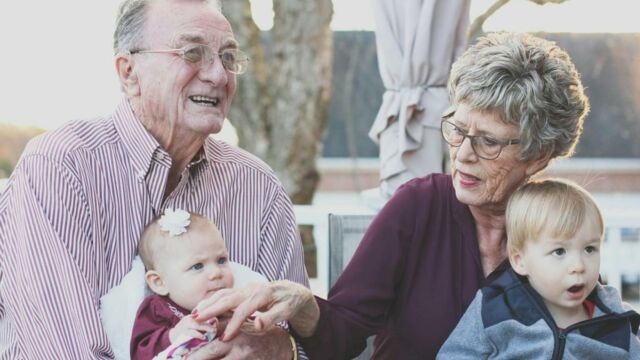Life can be very hard to predict, making knowing how long you will live hard to determine. It is a question many people ask themselves but unfortunately, doctors tend not to know the answer unless you have some kind of severe illness.
Discover our latest podcast
However, a recent study has reportedly been able to determine whether you will live until you’re old with a very simple 10-second test that you can perform at home! A study was published on January 2 in the British Journal of Sports Medicine.
The study reportedly found that a person’s balance can determine how long they will live! But how does it work, let’s have a look.
Balancing for 10 seconds can determine how long you will live
According to a study, for older people, balancing for 10 seconds on one foot can determine how long they will live. The study found that those who failed to balance on one foot for 10 seconds were twice as likely to die in the next 10 years.
As reported by NBC, a person’s balance only tends to deteriorate until their 60s, unlike aerobic fitness, flexibility and muscle strength. Dr Claudio Gil Soares de Araújo, the study’s lead author, explained that the reason loss of balance can predict a person’s risk of death is not yet clear.
Dr Claudio Gil Soares de Araújo, a sports and exercise physician and director of research and education at the Exercise Medicine Clinic-CLINIMEX in Rio de Janeiro, explained:
Aged people falling are in very high risk of major fractures and other related complications. This may play a role in the higher risk of mortality.
According to another study published in 2019, the number of deaths from falls of people aged over 75 was rising in the US.
Indeed, balancing on one foot is a part of everyone’s daily lives reminds Dr Araújo:
Remember that we regularly need to stay in a one-legged posture, to move out of a car, to climb or descend a step or stair and so on.
How does balance play into a person’s longevity?
Even though the exact reason why balance can predict a person’s longevity, it can be speculated that it has something to do with bone strength and a person’s overall physical health.
Indeed, as people age, their bones can become more brittle, making it more likely for them to break something if they fall. Dr Araújo explains:
Ageing is associated with a progressive decline in physical fitness and reductions or impairments in components of aerobic and non-aerobic fitness, including muscle strength, power, flexibility, balance and body composition.
Adding that a loss of flexibility and balance can have consequences on one’s health:
It is also well established that the combination of sarcopenic obesity and loss of flexibility and balance are detrimental for overall health. [This places] older adults with frailty more prone to falls and other serious adverse medical [consequences].
Read more:
⋙ Your eyes could show when you're going to die, according to study
⋙ 1 in 10 people in the UK are living with liver damage, here's how you can tell
⋙ Death rattle: This is what happens to your body 24 hours before you die
Sources used:
NBC: ‘10-second balance test may predict how long you'll live’
Indy100: ‘This one simple test could reveal how likely you are to live to old age’
British Journal of Sports Medicine: ‘Successful 10-second one-legged stance performance predicts survival in middle-aged and older individuals’
JAMA Network: ‘Mortality From Falls Among US Adults Aged 75 Years or Older, 2000-2016’















